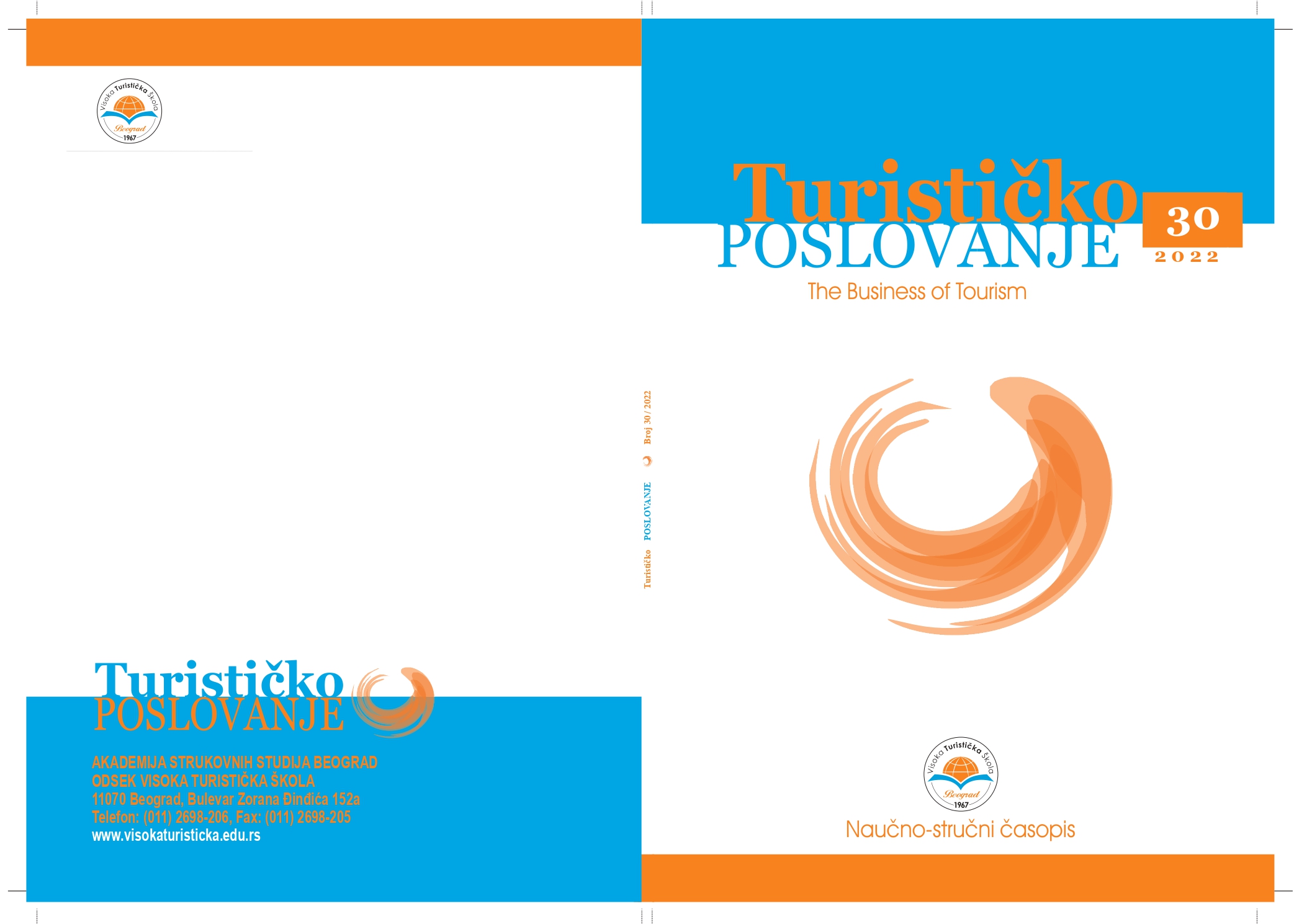EXAMPLES OF GOOD PRACTICE IN RURAL TOURISM OF THE RUSSIAN FEDERATION
Abstract
Modern trends in the tourism market, especially at a time when the world is affected by an epidemic of global proportions, has conditioned the return to nature, healthy lifestyles, domestic products and the need for psychophysical rest. More and more tourists are opting for shorter trips and stays in rural areas, away from the crowds that are present in popular tourist destinations. The Russian Federation is an area with significant resources for the development of rural tourism. Today, a number of Russian regions, relying on the unique nature, rich cultural and material heritage, traditions of the rural population are successfully implementing projects in the field of rural tourism. Such regions include the Kaluga, Vologda and Yaroslavl regions, the Altai Republic, Buryatia and Khakassia, and many others. According to the latest research, the potential of rural tourism in Russia in the next 10-15 years can be estimated at 50 billion rubles. The aim of this paper is to point out the possibilities of improving and developing rural tourism in the region based on this example of good practice.
References
1. Jafari J. (2000). Encyclopaedia of Tourism. London: Routledge.
2. Ružić, P. (2012)Analiza posebnosti i percepcije ruralnogturizma Istre, Poreč: Institut za poljoprivredu i turizam.
3. Бошковић,Т.(2012)Економски ефекти развоја туризма у руралним подручјима Србије. Школа бизниса, Vol (2),29—34.
4. Волков, С. К. (2012) Сельский туризм в РФ. Экономика — предпринимательство в право, № 6 (17), 30—38. Доступно на: https://cyberleninka.ru/article/n/selskiy-turizm-v-rf-tendentsii-i-perspektivy-razvitiya/viewer. [датум приступа страници: 30. 04. 2022.].
5. Вујовић,С.(2007) Агротуризам као подстицајни фактор економског развоја Војводине. Тематски зборник,Vol (36), 125—136.
6. Ђуровић, М. (2010) Координација промотивних активности у туризму на макро и микро нивоу. Магистарски рад, Београд: Економски факултет.
7. Зечевић,Б. (2002)Информациона технологија у управљању маркетингом туристичкедестинације. Докторска дисертација. Београд: Економски факултет.
8. Јелена,М.О.(2016) Законски и стратешки оквир унапређења туризма и агротуризма у Србији. Агроекономика, 45—69.
9. Копылова С. Л., Лебедева И. В. (2019) Проект программы развития сельского туризма в России до 2030 года. Москва: АНО АРСИ.
10. Международный независимый институт аграроной политики: Концепция развития сельского туризма. Доступно на: https://xn--80aplem.xn--p1ai/rural-tourism/. [датум приступа страници: 25. 04. 2022.].
11. Радовић, Г.,Пејановић, Р.,Његован З. Значај и улога интегрисаног туристичког производа у Републици Србији. Економски видици, Vol (17), 4,577—591.
12. Селаковић, Д.(2014)Рурални туризам — између теорије и праксе. Београд: Српско географско друштво.
13. Стефановић,В.,Аземовић, Н.(2012) Одрживи развој туризма на примеру Власинске површи.Школа бизниса, Vol(1),38—54.

